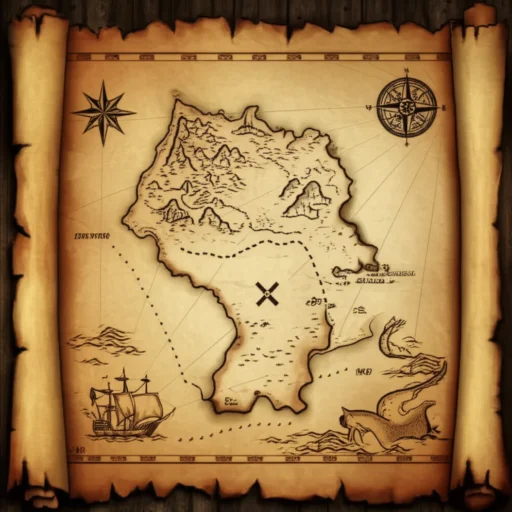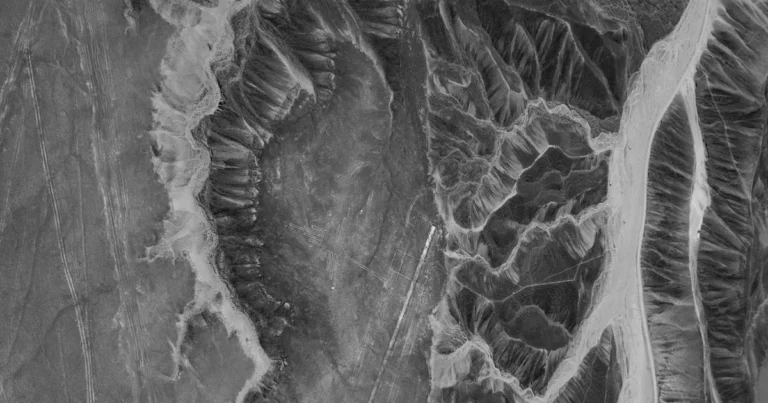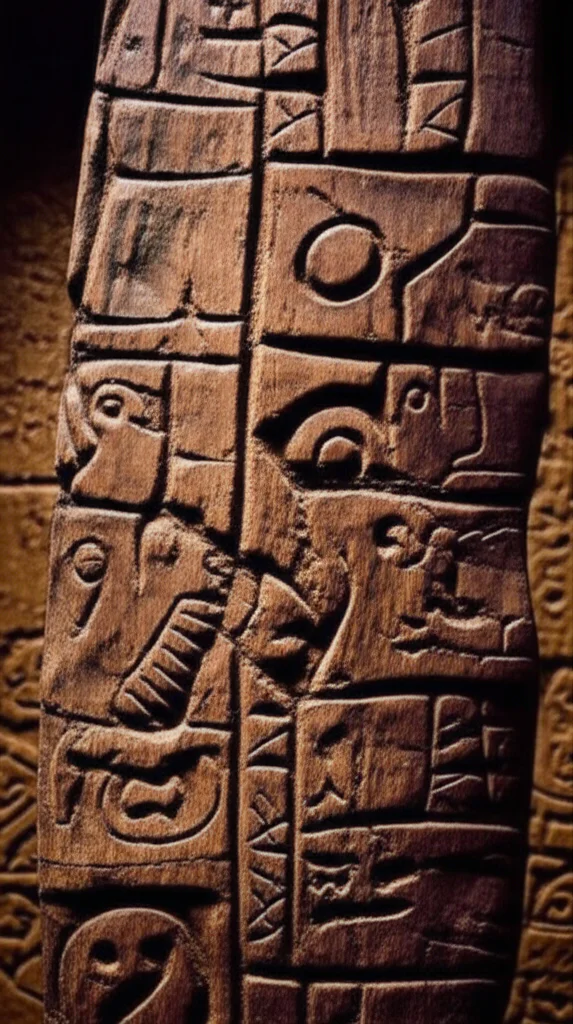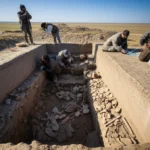Support our educational content for free when you purchase through links on our site. Learn more
What Is the Legend of Atlantis? 🌊 Unveiling the Lost World (2025)
For over two millennia, the legend of Atlantis has captivated imaginations, inspiring explorers, philosophers, and storytellers alike. But what exactly is the legend of Atlantis? Is it a forgotten civilization swallowed by the sea, a philosophical allegory, or something in between? In this deep dive, we unravel the origins of the myth, explore the most compelling location theories, and separate fact from fiction with insights from the History Hidden™ team.
Did you know Plato’s original account ends abruptly, leaving the fate of Atlantis shrouded in mystery? Later sections reveal how this unfinished story sparked centuries of speculation and inspired everything from ancient philosophy to blockbuster movies. Whether you’re a skeptic or a dreamer, this article will guide you through the fascinating layers of one of history’s greatest mysteries.
Key Takeaways
- Plato’s dialogues Timaeus and Critias are the sole ancient sources for the Atlantis story, framing it as a moral allegory rather than historical fact.
- No archaeological evidence supports Atlantis as a real sunken continent, but natural disasters like the Thera eruption may have inspired the myth.
- The legend has influenced literature, art, pop culture, and New Age spirituality, evolving far beyond Plato’s original narrative.
- Modern scientific consensus dismisses Atlantis as fiction, yet the myth endures because it reflects timeless human hopes and fears.
- Our History Hidden™ team recommends embracing Atlantis as a powerful story that challenges us to reflect on civilization’s rise and fall — not as a literal lost city waiting to be found.
Ready to dive deeper into the mystery? Keep reading for detailed explorations of Atlantis’s origins, interpretations, and cultural legacy!
Table of Contents
- ⚡️ Quick Tips and Facts
- 🌊 The Enduring Enigma: Unearthing the Atlantis Legend’s Origins
- 🤔 Beyond Plato: Exploring Interpretations and Speculations
- 🗺️ Where Could Atlantis Be? Unraveling Location Hypotheses
- 🎬 The Atlantean Legacy: Influence on Culture and Pop Culture
- 🔬 Debunking the Myths: Critical Perspectives and Archaeological Skepticism
- 🕵️♀️ Our “History Hidden™” Team’s Take: Personal Reflections on the Atlantis Quest
- ✨ Conclusion: The Enduring Power of a Lost World
- 🔗 Recommended Links: Dive Deeper into the Mystery
- ❓ FAQ: Your Burning Questions About Atlantis Answered
- 📚 Reference Links: Our Sources for This Epic Journey
Here at History Hidden™, we’ve chased down countless whispers of the past, but none echo quite as loudly as the legend of Atlantis. It’s a tale that has everything: a utopian society, god-like beings, unimaginable wealth, and a cataclysmic end that swallowed a continent whole. But what is the real story behind this enduring myth? Let’s dive deep, shall we?
⚡️ Quick Tips and Facts
Before we plunge into the depths, here’s a quick treasure map of what you need to know about the lost city.
| Fact Category | The Lowdown on Atlantis |
|---|---|
| Primary Source | The Greek philosopher Plato is our one and only original source. He wrote about it around 360 BCE in his dialogues, Timaeus and Critias. |
| The Story in a Nutshell | A mighty naval power, founded by half-god, half-human beings, became corrupt with greed and hubris. After a failed invasion of Athens, the gods punished them, and the island sank into the sea in “a single day and night of misfortune.” |
| Location? | Plato placed it “beyond the Pillars of Hercules” (the Strait of Gibraltar), in the Atlantic Ocean. However, proposed locations now span the entire globe, from the Mediterranean to Antarctica. |
| Is It Real? | Overwhelmingly, no. The vast majority of historians, archaeologists, and scientists agree that Atlantis is a fictional creation by Plato. Ocean explorer Robert Ballard aptly noted that “no Nobel laureates” have validated the story. |
| Why the Obsession? | The legend is a powerful allegory about the dangers of power and societal collapse, and it taps into our collective fascination with lost worlds and undiscovered secrets. As one video we watched noted, its appeal lies in the idea of “an ancient magical civilization lost at the bottom of the ocean.” |
🌊 The Enduring Enigma: Unearthing the Atlantis Legend’s Origins
Every great mystery has an origin story, and for Atlantis, it all begins with one man: Plato. Forget dusty scrolls from a forgotten age; our entire understanding of this legendary civilization comes from the mind of this Athenian philosopher. It’s a cornerstone of our Folklore and Legends collection and a tale we’ve dissected countless times. The story of Atlantis is, first and foremost, Plato’s story.
📜 Plato’s Grand Narrative: The Birth of Atlantis in Ancient Texts
So, how did this all start? Picture it: Athens, circa 360 BCE. Plato, one of the most influential thinkers in Western history, is writing a series of dialogues. He’s not just telling a story; he’s crafting a philosophical argument.
📖 The Dialogues of Plato: Timaeus and Critias Unpacked
The legend of Atlantis is laid out in two of Plato’s dialogues: Timaeus and Critias.
- Timaeus sets the stage. The character Critias introduces the story as a true historical account of a conflict between ancient Athens and the mighty island empire of Atlantis, which he claims happened 9,000 years before their time.
- Critias fills in the details. This dialogue gives us the juicy bits: the divine origins of Atlantis, its incredible geography with concentric rings of land and water, its advanced engineering, and its immense wealth, including the mysterious metal orichalcum, said to be second only to gold in value.
Unfortunately for us history detectives, Plato’s Critias is an unfinished work. It cuts off right as Zeus and the other gods are about to decide the fate of the now-corrupt Atlanteans. Talk about a cliffhanger!
🗣️ Solon’s Journey and the Egyptian Priests: The Story’s Transmission
To give his tale a whiff of authenticity, Plato doesn’t claim to have invented it. ✅ Instead, he creates a compelling backstory for the story itself. He claims the Athenian statesman Solon (a real historical figure) traveled to Egypt and was told the tale by priests who had access to ancient records. These priests supposedly revealed that Athens had a forgotten, glorious history, including its victory over the Atlantean invaders. The story was then passed down through generations until it reached Plato.
❌ The problem? There is zero historical or archaeological evidence of these Egyptian records or of Solon ever telling such a story. It’s a classic literary device, what one scholar calls “a standard device of fiction—stressing the historicity of an event… as an indication that what follows is fiction.”
🏛️ The Atlantean Civilization: A Glimpse into its Golden Age
According to Plato, Atlantis was a paradise. The island was bequeathed to Poseidon, the god of the sea. He fell in love with a mortal woman, Cleito, and they had five pairs of twin sons. The eldest, Atlas, became the first king, and the island and the surrounding ocean were named after him.
The capital city was a marvel of engineering:
- Concentric rings of land and sea, connected by bridges and a massive canal.
- Walls plated with brass, tin, and the glowing orichalcum.
- Lush lands rich with precious metals, exotic wildlife, and abundant crops.
It was, in short, a utopian society blessed by the gods. But as we all know, paradise is often fleeting.
🌋 The Downfall: Divine Wrath and Cataclysmic Destruction
The golden age couldn’t last. As generations passed, the divine blood of the Atlanteans thinned, and they became filled with “unrighteous avarice and power.” They grew greedy, arrogant, and “morally bankrupt.” Their hubris led them to wage war against the peoples of the Mediterranean, conquering vast territories.
Their final target was Athens. But Plato’s idealized ancient Athens, representing his perfect state, single-handedly defeated the mighty Atlantean empire. Angered by their impiety, the gods turned against Atlantis. In a final, devastating judgment, “there occurred violent earthquakes and floods; and in a single day and night of misfortune… the island of Atlantis in like manner disappeared in the depths of the sea.”
🤔 Beyond Plato: Exploring Interpretations and Speculations
So, the story ends there, right? A sunken island, a finished tale. Oh, if only it were that simple! Plato’s story was just the beginning. For over two millennia, people have been asking one question above all others.
❓ Is Atlantis Real? The Age-Old Question and Modern Debates
Let’s be blunt: almost certainly not. As much as our inner Indiana Jones wants to find a map and a submarine, the scholarly consensus is clear. Atlantis is a myth. Plato’s own student, Aristotle, dismissed it as a pure invention.
The lack of evidence is staggering:
- No other ancient texts mention Atlantis. None. For an empire supposedly larger than “Libya and Asia combined,” that’s a deafening silence.
- No archaeological evidence has ever been found. No ruins, no artifacts, no inscriptions.
- The timeline is impossible. Plato’s “9,000 years before Solon” would place the war around 9,600 BCE, a time when a civilization like Athens as he described it simply did not exist.
⚖️ Philosophical Allegory vs. Historical Account: What Did Plato Intend?
If it’s not a true story, then what is it? Most experts agree that Atlantis was a philosophical allegory or a morality tale. Plato wasn’t writing history; he was teaching a lesson. He used the story to:
- Praise his vision of an ideal state (represented by ancient Athens).
- Warn against the dangers of imperialism, materialism, and hubris (represented by Atlantis).
- Explore themes of divine versus human nature and the cyclical rise and fall of civilizations.
As one analysis puts it, “We have missed the point if instead of thinking about these issues we go off exploring the sea bed.” The story isn’t about a place; it’s about an idea.
✨ The Allure of the Lost City: Why Atlantis Captivates Us Still
So why are we still obsessed? Because it’s one of the greatest Mythology Stories ever told! The legend of Atlantis speaks to a deep human desire for a lost golden age, a world of wonder hidden just beyond our reach. It’s a story of what we could be and a warning of what we might become. It captures the imagination because it’s a “great myth” with elements people “love to fantasize about.” And with over 80% of our oceans still unexplored, who doesn’t love to wonder what might be down there?
🗺️ Where Could Atlantis Be? Unraveling Location Hypotheses
Even though it’s a myth, that hasn’t stopped people from trying to pinpoint Atlantis on a map. And we mean all over the map. As one expert joked, “Pick a spot on the map, and someone has said that Atlantis was there.” Let’s look at some of the most popular—and outlandish—theories.
🏝️ The Mediterranean Maze: Santorini (Thera) and the Minoan Connection
This is perhaps the most credible and widely discussed theory. The idea is that Plato’s story wasn’t a complete fabrication but was inspired by a real historical event: the catastrophic volcanic eruption on the island of Thera (modern-day Santorini) around 1600 BCE.
- The Connection: This eruption destroyed the highly advanced Minoan civilization based on nearby Crete. The Minoans were a powerful naval force, much like the Atlanteans, and the eruption and subsequent tsunamis would have been a cataclysm of epic proportions, an event that could easily have been passed down through oral tradition.
- The Evidence: There are compelling parallels. The Minoans had advanced art and engineering. The destruction was sudden and devastating. Egyptian records even mention the chaos caused by the Thera eruption.
- The Problem: The timeline is way off. The Thera eruption happened about 1,200 years before Plato, not 9,000. Also, Santorini is in the Aegean Sea, not the Atlantic Ocean. Still, as a source of inspiration, it’s a strong contender.
Another possible, and perhaps more likely, inspiration was the destruction of the Greek city of Helike in 373 BCE, during Plato’s own lifetime. The city, a major center for the worship of Poseidon, was destroyed overnight by an earthquake and tsunami, sinking into the sea. Sound familiar?
🧭 The Atlantic Ocean: Bimini Road and the Azores Theories
For those who take Plato’s “beyond the Pillars of Hercules” literally, the search has focused on the Atlantic.
- The Bimini Road: An underwater rock formation near Bimini in the Bahamas, discovered in 1968. Some claim its large, rectangular stones are man-made remnants of an Atlantean road or wall. Geologists, however, overwhelmingly agree it’s a natural formation of beachrock.
- The Azores: A group of volcanic islands in the mid-Atlantic, which some theorists believe are the mountaintops of the sunken continent of Atlantis.
🏜️ Beyond the Pillars of Hercules: Spain, Morocco, and the Richat Structure
Recent theories have looked closer to the Strait of Gibraltar. Some researchers have pointed to submerged marshlands in southern Spain, suggesting they were the site of the ancient city.
More visually striking is the Richat Structure in Mauritania, also known as the “Eye of the Sahara.” This massive, circular geological formation bears a superficial resemblance to Plato’s description of the concentric rings of Atlantis’s capital. While visually compelling, there is no archaeological evidence to support this as a man-made structure or a lost city.
🧊 Unexpected Shores: Antarctica, Ireland, and Other Far-Flung Claims
And then things get weird. Over the years, Atlantis has been “found” in:
- Antarctica: Based on the idea that a pole shift moved the continent to its current frozen location.
- Ireland: Connecting it to Celtic mythology.
- The Caribbean Sea: Often linked to the Bermuda Triangle.
- South America: With theories trying to connect it to the Inca or Mayan civilizations.
These theories rely on pseudoscience and wild speculation, but they show just how far the legend of Atlantis has traveled.
🎬 The Atlantean Legacy: Influence on Culture and Pop Culture
Whether real or not, Atlantis has left an indelible mark on our culture. It’s a story that has been retold, reimagined, and repurposed for centuries, often straying far from Plato’s original cautionary tale. As the narrator of a fantastic video summary we recommend you watch at #featured-video points out, modern adaptations often remove the war with Athens, give Atlantis “super advanced (sometimes magic) tech,” and, most popularly, have the civilization survive and thrive underwater!
📚 Literary Echoes: Atlantis in Novels, Poetry, and Comics
From the Renaissance onward, writers have been fascinated by Atlantis.
- Utopian Fiction: Sir Francis Bacon’s New Atlantis (1627) and Sir Thomas More’s Utopia (1516) used the idea of a remote, advanced island society to explore political and social ideals.
- Adventure Novels: Jules Verne’s Twenty Thousand Leagues Under the Seas features a visit to the ruins of Atlantis.
- Fantasy Epics: J.R.R. Tolkien’s legend of Númenor, a great island kingdom given to men that is ultimately destroyed due to their pride, is a clear and iconic retelling of the Atlantis myth.
- Comics: Both DC Comics and Marvel Comics have their own versions of Atlantis, ruled by the famous aquatic superheroes Aquaman and Namor the Sub-Mariner, respectively.
🎮 Cinematic Spectacles and Gaming Worlds: Bringing Atlantis to Life
The visual medium loves Atlantis. Disney’s animated classic Atlantis: The Lost Empire created a unique, steam-punk-inspired vision of the sunken city. The recent blockbuster Aquaman brought a visually stunning and technologically advanced Atlantis to the big screen.
In video games, the legend has been explored in series like God of War, where Kratos causes the sinking of the city, and Assassin’s Creed Odyssey, which features an extensive DLC titled The Fate of Atlantis. It’s even referenced in unexpected places; as one commentator humorously admitted, “Yugioh knew more about Atlantis than I did. That one… that one kind of stung.”
🎨 Artistic Visions: How Artists Have Depicted the Lost City
For centuries, painters and sculptors have tried to capture the grandeur and tragedy of Atlantis. From 17th-century maps showing the island in the middle of the Atlantic to dramatic 19th-century Romantic paintings of its destruction, artists have helped shape our collective imagination of what the lost city might have looked like.
🧘♀️ New Age and Esoteric Beliefs: Atlantis as a Spiritual Hub
Beginning in the late 19th century with figures like Ignatius L. Donnelly and Helena Blavatsky, Atlantis took on a new life in esoteric and New Age circles. It was reimagined as the “mother culture” of all ancient civilizations, home to an advanced race with psychic powers and crystal technology. The American psychic Edgar Cayce gave thousands of “readings” claiming his subjects were reincarnations of Atlanteans. This version of Atlantis—a place of spiritual wisdom and lost technology—remains incredibly popular in these communities today.
🔬 Debunking the Myths: Critical Perspectives and Archaeological Skepticism
Here at History Hidden™, we love a good story, but we also love the facts. And when it comes to Atlantis, the facts are clear: the case for a real lost continent is non-existent. It’s crucial to separate the powerful myth from the historical reality.
🚫 The Scientific Consensus: Why Most Academics Remain Unconvinced
The academic world is united on this. Historians, classicists, and archaeologists see the story for what it is: a fictional narrative created by Plato. The arguments are straightforward:
- Lack of Corroborating Sources: Plato is the only source. Period.
- Geological Impossibility: The theory of plate tectonics makes the idea of a large continent sinking in the Atlantic geologically impossible.
- Archaeological Void: Decades of advanced oceanography and seafloor mapping have revealed no trace of a sunken city.
⛏️ Archaeological Evidence: The Search for What Isn’t There
Think about it. We’ve found countless shipwrecks, some thousands of years old. We’ve excavated submerged cities like parts of Alexandria in Egypt and the aforementioned Helike in Greece. Yet, in the vast expanse where Atlantis was said to be, we’ve found nothing. The absence of evidence, in this case, is indeed strong evidence of absence.
⚠️ The Dangers of Pseudoscience: Separating Fact from Fiction
The search for Atlantis has often veered into the realm of pseudoscience. It has been co-opted by various groups to support their own ideologies, from 19th-century racial theories to the Nazi party’s obsession with finding a mythical Aryan homeland. This highlights the danger of taking myths literally and trying to force them into the historical record. It’s a reminder to always approach history with a critical eye and a demand for evidence.
🕵️♀️ Our “History Hidden™” Team’s Take: Personal Reflections on the Atlantis Quest
We’ve spent years chasing shadows, and Atlantis is the most captivating shadow of them all. I remember being a kid and watching the Disney movie, completely convinced that a lost, magical city was just waiting to be discovered. That sense of wonder is what drives us.
So, what’s our final verdict?
Atlantis is a myth. But it’s the most important myth we have about lost worlds.
It’s a story that has everything. It’s a political allegory, a morality tale, a sci-fi adventure, and a spiritual quest all rolled into one. To ask “Is Atlantis real?” is to ask the wrong question. The right question is, “Why do we need Atlantis to be real?”
The answer, we think, is that the legend of Atlantis is a mirror. It reflects our hopes for a perfect, utopian society and our fears of our own self-destructive tendencies. It’s a canvas onto which we project our dreams of discovery and our nostalgia for a past that never was.
✅ Our recommendation? Embrace the legend. Read Plato’s dialogues. Watch the movies. Play the games. Dive into the wild theories. But do it with the understanding that you’re exploring one of humanity’s greatest works of fiction. The true treasure of Atlantis isn’t a sunken city; it’s the incredible, enduring power of the story itself.
✨ Conclusion: The Enduring Power of a Lost World
After our deep dive into the legend of Atlantis, one thing is crystal clear: Atlantis is less a place and more a powerful idea. Plato’s story, whether fact, fiction, or a bit of both, has transcended millennia to become a symbol of human ambition, hubris, and the eternal quest for utopia.
While the tantalizing question “Is Atlantis real?” remains unanswered in any archaeological sense, the legend continues to inspire explorers, artists, philosophers, and dreamers alike. The incomplete narrative of Plato’s unfinished Critias leaves us with a cliffhanger that fuels speculation and imagination to this day. But as we’ve uncovered, the true treasure lies not beneath the waves, but in the story’s enduring capacity to reflect our hopes and fears.
Positives of the Atlantis Legend:
- A rich allegory teaching lessons about power, morality, and society.
- A catalyst for historical and archaeological inquiry.
- A wellspring of inspiration in literature, art, and pop culture.
- A bridge connecting ancient philosophy with modern myth-making.
Negatives:
- Its mythic status has sometimes been exploited by pseudoscience and fringe theories.
- The endless search for physical proof can distract from its philosophical and cultural value.
Our confident recommendation? Embrace Atlantis as a legendary mirror of humanity’s dreams and follies. Read Plato’s dialogues with a critical eye, enjoy the many creative retellings, but don’t expect to find sunken ruins on the ocean floor. The real Atlantis is the story itself — a timeless myth that challenges us to reflect on our own civilizations.
🔗 Recommended Links: Dive Deeper into the Mystery
Ready to explore Atlantis further? Here are some essential reads and resources that blend scholarship with storytelling:
-
Plato’s Timaeus and Critias (Penguin Classics edition)
Amazon -
“Atlantis: The Antediluvian World” by Ignatius L. Donnelly (classic pseudoscientific take)
Amazon -
“The Atlantis Encyclopedia” by Frank Joseph (comprehensive compendium of theories)
Amazon -
National Geographic’s Atlantis Feature
National Geographic -
History Hidden™ Atlantis Collection
History Hidden™ Atlantis
❓ FAQ: Your Burning Questions About Atlantis Answered
Who first wrote about the legend of Atlantis?
The earliest and only known detailed account of Atlantis comes from the Greek philosopher Plato, who wrote about it in his dialogues Timaeus and Critias around 360 BCE. Plato framed the story as a historical account passed down from Egyptian priests to the Athenian lawmaker Solon, but no other ancient sources corroborate this tale.
What evidence supports the existence of Atlantis?
❌ There is no archaeological or historical evidence supporting the existence of Atlantis as a real place. The story is unique to Plato’s writings, and despite extensive oceanic exploration and archaeological research, no ruins or artifacts have been found that match the description of Atlantis.
Where is Atlantis believed to have been located?
Plato described Atlantis as lying beyond the Pillars of Hercules (the Strait of Gibraltar), suggesting the Atlantic Ocean. Over centuries, many locations have been proposed, including:
- The Mediterranean Sea (Santorini/Thera and the Minoan civilization)
- The Azores Islands
- The Bahamas (Bimini Road)
- The Richat Structure in Mauritania
- Even Antarctica and Ireland
However, none of these hypotheses have been conclusively proven.
How has the legend of Atlantis influenced modern culture?
Atlantis has inspired countless works across literature, film, art, and gaming. From Francis Bacon’s utopian writings to Disney’s Atlantis: The Lost Empire, and from J.R.R. Tolkien’s Númenor to comic book heroes like Aquaman, the myth continues to captivate imaginations worldwide. It also plays a significant role in New Age spirituality and esoteric beliefs.
Are there any historical sites linked to Atlantis?
While no site is definitively linked to Atlantis, some scholars suggest the Minoan civilization on Crete and Santorini may have inspired the myth, especially due to the massive volcanic eruption on Thera around 1600 BCE. Another candidate is the ancient Greek city of Helike, which sank after an earthquake in 373 BCE, possibly influencing Plato’s narrative.
What theories explain the disappearance of Atlantis?
According to Plato, Atlantis was destroyed by earthquakes and floods in a single catastrophic event. Modern theories link this to real natural disasters such as volcanic eruptions (Thera), tsunamis, or seismic activity. However, these remain speculative and are not supported by direct evidence of a sunken civilization.
How do ancient myths compare to the story of Atlantis?
Many ancient myths share themes of lost lands and cataclysmic destruction (e.g., the biblical Flood, the Epic of Gilgamesh). Atlantis fits within this tradition as a cautionary tale about human pride and divine punishment. Unlike many myths, however, Atlantis is unique in its detailed geographic and political description, reflecting Plato’s philosophical intentions rather than purely religious or folkloric origins.
📚 Reference Links: Our Sources for This Epic Journey
For further verification and exploration, here are some reputable sources we relied on:
- Atlantis – Wikipedia — Comprehensive overview of the legend, history, and theories.
- Atlantis: The Lost City – National Geographic — Expert analysis and archaeological perspectives.
- Is Atlantis Real? The Truth Behind the Atlantis Myth | TheCollector — In-depth discussion of the myth’s origins and interpretations.
- History Hidden™ Atlantis Collection — Our own curated articles and insights on Atlantis and related legends.
We hope this comprehensive journey through the legend of Atlantis has satisfied your curiosity — or at least left you dreaming of what lies beneath the waves! 🌊✨







